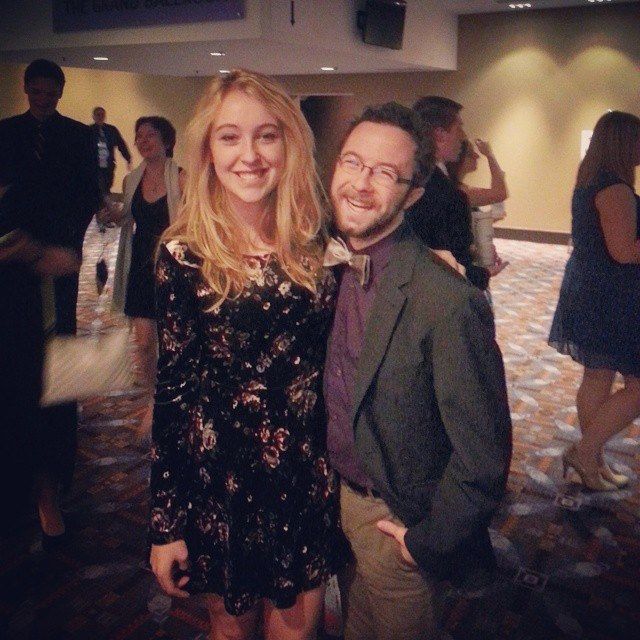
Alexandra Kramer (President) and Matt Gabb (Secretary). Gabb is a junior anthropology major.
Thirteen of this university’s professional Greek organizations have teamed up this semester to form a representative governing body.
The Professional Greek Council acts independently of the Professional Fraternity Association, the national governing body of professional Greek groups. The university’s council, which held its first meeting two weeks ago, formed to open up opportunities for more campus Greek organizations, including an LGBT “frarority.”
“We didn’t want to be constrained,” said Alexandra Kramer, the council’s president and a member of Alpha Phi Omega, a national service fraternity. “[The Professional Fraternity Association] didn’t want to take Theta Pi Sigma, the LGBT fraternity, just because they said they weren’t professionally focused.”
The council did not decide to partner with the national organization after it would not accept Theta Pi Sigma as a member and the group members wanted more inclusion from all professional and alternative organizations on the campus.
“We as a community don’t have to follow [the Professional Fraternity Association’s] rules,” Kramer said.
Over the past two weeks, members have been creating and discussing bylaws to further separate the council from the national organization, said Shane Henderson, the council’s treasurer and member of Theta Tau, a co-ed engineering fraternity. During Thursday’s meeting, he said members have emphasized inclusiveness.
“It’s really trying to bring together this community of professional and academic fraternities,” said Henderson, a junior civil engineering major. “We’re trying to have a central place where everyone can go and build resources and network.”
Divya Jain, a member of the Alpha Omega Epsilon engineering sorority, said the council will help to foster networking and interdependence among professional Greeks at this university.
“It’s a great way to pool our resources and be more united,” said Jain, a junior bioengineering major.
In the past, Kramer said, there hasn’t been much representation or acknowledgment of professional Greek life, and she said she hopes to change that with the council. Members of the council said they were inspired by Syracuse University and the Rochester Institute of Technology, which have formed their own professional Greek committees.
The council is comprised of one or two representatives from each affiliated academic association, Henderson said.
One of the council’s first tasks is planning its own version of Greek Week, called “Geek Week.” While the concept isn’t new, Kramer said the new council aims to improve the process and build a bigger sense of community among professional Greeks.
“This organization could really work,” she said. “This is to pull us together.”
CORRECTION: Due to reporting errors, a previous version of this story and headline incorrectly stated that 15 professional Greek organizations teamed up to form the council, but it should have been 13. The previous version also incorrectly called the governing body the Professional Fraternity Council when it should be the Professional Greek Council. Also, the council decided not to partner with the national organization not only because it would not accept Theta Pi Sigma as a member, but also because the group members wanted more inclusion for all professional and alternative organizations on the campus. This article has been updated to reflect these changes.



